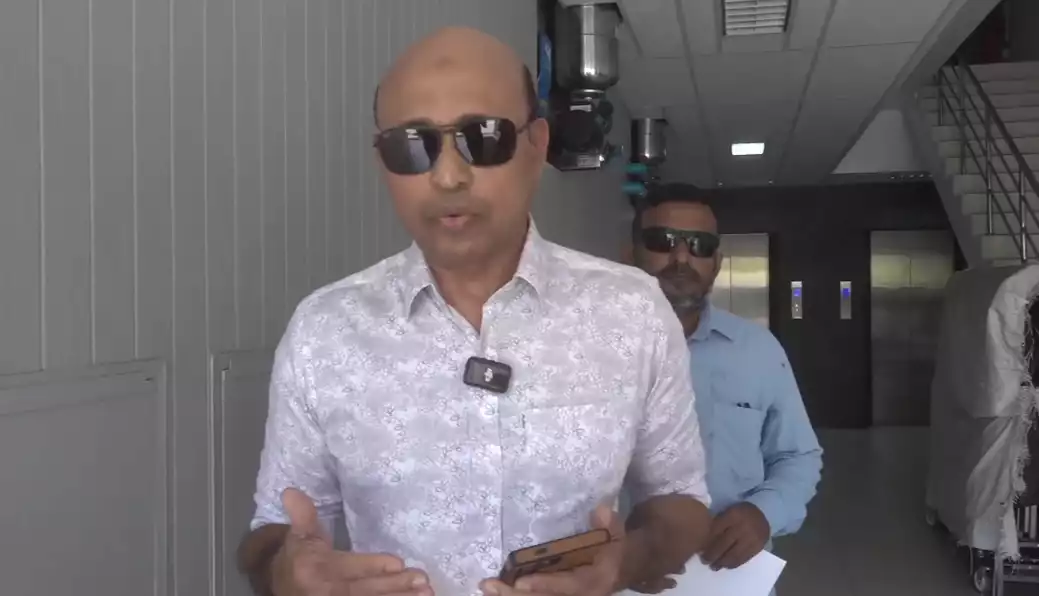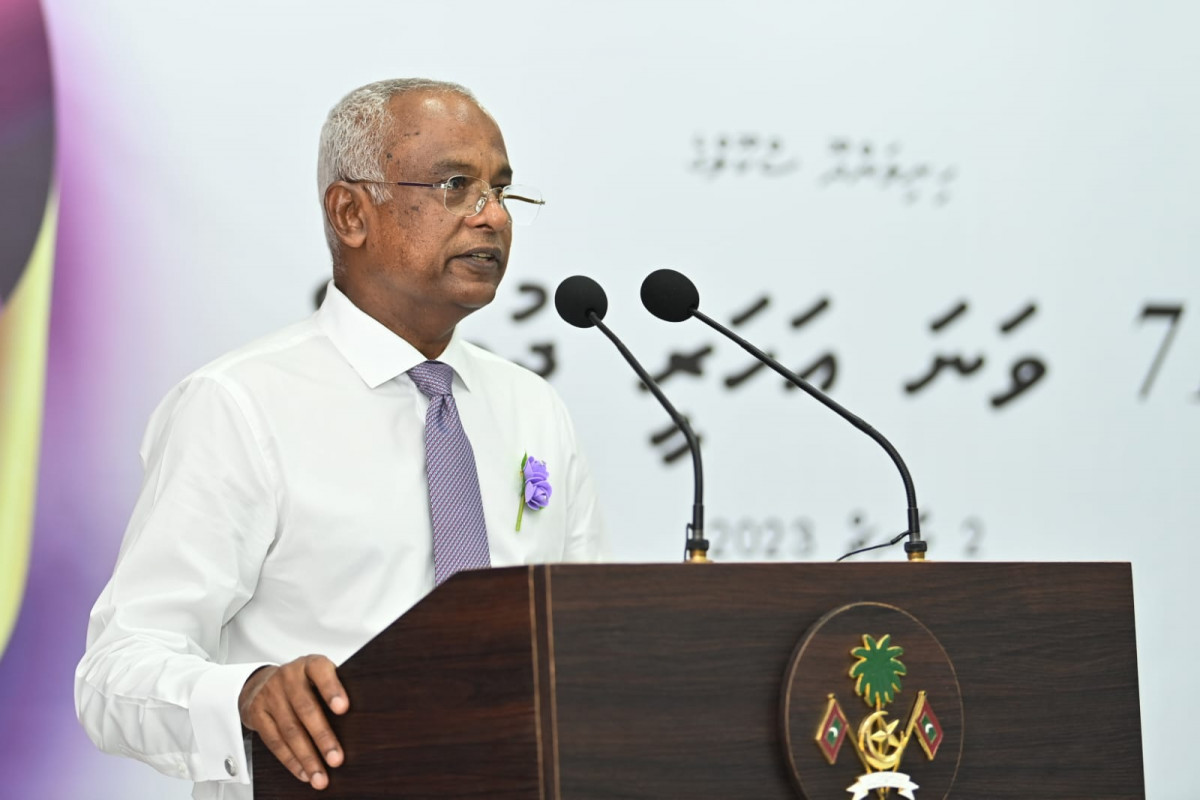ACC receives corruption complaint against FDC over half a billion MVR linked to flat allocation
ACC received corruption complaint against FDC alleging misuse of over MVR 500 million in state housing project


Former State Minister and MDP National Congress Member Ahmed "Maaz" Saleem speaking to RaajjeTV after submitting a corruption case against FDC.
The Anti-Corruption Commission (ACC) has received a formal complaint alleging large-scale corruption by Fahi Dhiriulhun Corporation (FDC), involving over half a billion Maldivian Rufiyaa in connection with a state housing project.
The case was submitted on Wednesday by Ahmed “Maaz” Saleem, a former State Minister at the Home Ministry, and member of the main opposition Maldivian Democratic Party’s (MDP) National Congress.
Speaking to RaajjeTV regarding the case, Saleem alleged that the corruption stems from FDC’s handling of the 4,000 flats allocated under the housing scheme initiated by former President Ibrahim Mohamed Solih’s administration. He said legally binding agreements had already been signed with flat recipients during the previous government, which made them the rightful occupants under those terms.
However, according to Saleem, the current administration has attempted to reverse these agreements, creating significant distress among citizens. After failing to reclaim the flats, FDC has now reportedly begun signing new rental contracts with the same individuals and collecting advance payments, actions that Saleem claims blatantly contradict the original agreements and violate both contractual law and Islamic business principles.
Saleem further revealed that at the site where FDC is signing these new agreements, a commercial stall named “Faseyha Inside Studio” has been set up to promote furniture sales for the flats. He alleged that another stall has been installed to compel flat recipients to purchase air conditioners from a specific company, suggesting possible coercion.
According to Saleem, some FDC employees are pressuring citizens to buy furniture and appliances from select vendors. He cited that kitchen cabinet sets are being sold for MVR 50,000 each, which, multiplied across 4,000 flats, amount to MVR 200 million. Air conditioners priced at MVR 30,000 each would total MVR 120 million. He also listed bundled furniture prices, MVR 51,805 for two-bedroom flats and MVR 55,046 for three-bedroom units, estimating the overall scheme to exceed MVR 500 million.
Saleem claims such conduct is in clear violation of multiple laws, including the Anti-Corruption Act, the Anti-Corruption Commission Act, the Business and Contract Law, and the Public Finance Act. He argues that FDC appears to be using its position to grant undue benefits to certain entities, some of which he alleged are “paper companies” without the capacity to handle such large-scale contracts.
He further alleged that these business deals were made without any public announcement or tendering process, pointing to deliberate favoritism. This, he asserted, amounts to abuse of state resources for private gain and a serious breach of public trust.
Saleem singled out FDC’s Managing Director, Hamdhaan Shakeel, as potentially responsible for orchestrating the misuse of state resources to benefit specific individuals or groups, raising further concerns about abuse of power.
Emphasizing that the original agreements signed during the previous administration remain legally binding, Saleem insisted that any attempt to override them through new business agreements is unlawful. He has called on the Anti-Corruption Commission (ACC) to urgently investigate whether FDC’s actions constitute violations of the Public Finance Act and other relevant legislation, and whether corruption has occurred in the process of renegotiating agreements with flat recipients.






